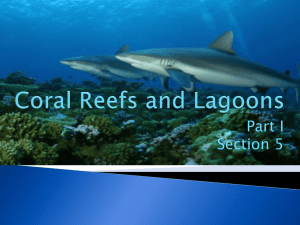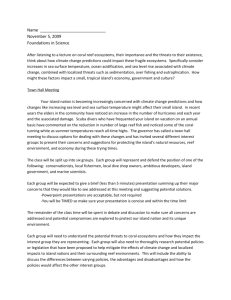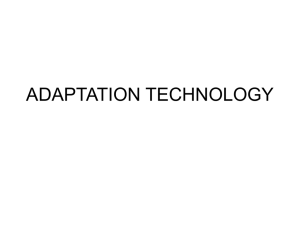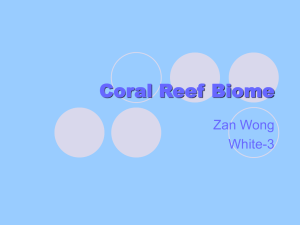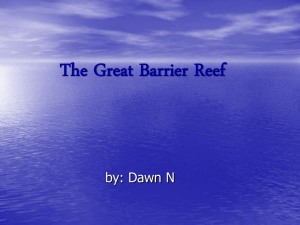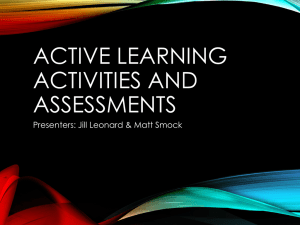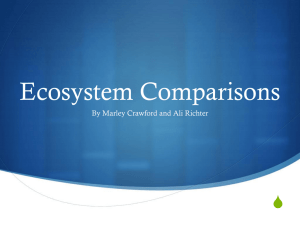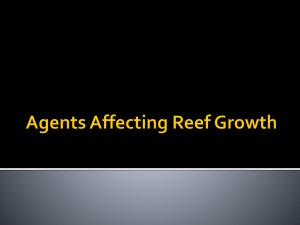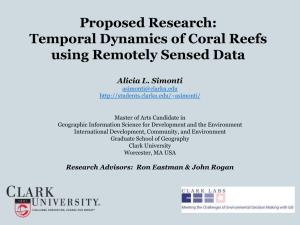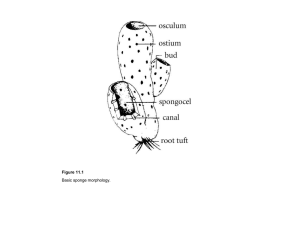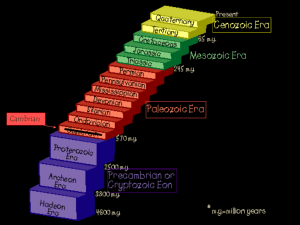Menjangan Island fieldtrip Power Point presentation
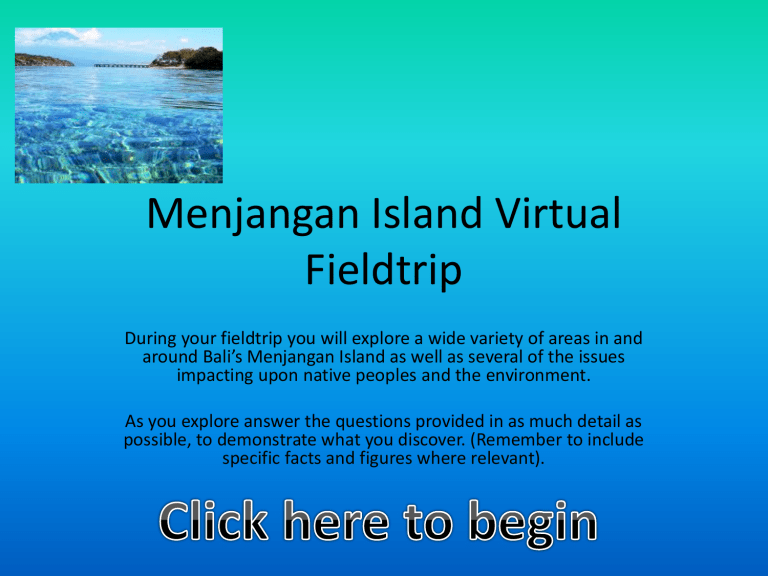
Menjangan Island Virtual
Fieldtrip
During your fieldtrip you will explore a wide variety of areas in and around Bali’s Menjangan Island as well as several of the issues impacting upon native peoples and the environment.
As you explore answer the questions provided in as much detail as possible, to demonstrate what you discover. (Remember to include specific facts and figures where relevant).
Location
• Menjangan is an Island off the Northwest coast of Bali. It is part of an archipelago (a group of small islands).
• The Island lies within the Coral Triangle, which is a 2.3 million square mile area that contains over 40% of fish species and over 75% of known coral reef species; This area sustains over 120million people.
• Use Google Earth or Google maps to find it.
A brief background/History
• Menjangan Island is part of Bali Barat National Park. It reef is considered the most spectacular of all the reefs in Bali and as such the island was made a Marine Protected Area .
• The Indonesian word Menjangan means Deer, so the island is also known as ‘Deer Island’. This is also partially to do with the fact that it used to be the natural habitat of Bali’s
Deer, who would swim to the Island every spring.
• Menjangan was designated a Marine Protected Area within
Bali Barat National Park nearly 35 years ago. Since then fishers have been persuaded to change from fishing to ferrying tourists. The tourist industry is booming with
Menjangan’s reefs being considered the best in Bali and attracting 50-100 divers a day! This has been part of an
economic shift from primary to tertiary industry.
Climate
• Bali has a Tropical Climate.
• http://bali.tasikdivers.com/bali-diving.html
Coral Reef Ecosystem
Coral Bleaching
http://sites.duke.edu/biology217_01_s2011_p v24/how-does-rising-temperature-affect-coralcommunities/global-threats/coral-bleaching/
• Coral reefs grow in shallow, warm water, mostly near land, and mostly in the tropics; coral prefer temperatures between
21 - 30°C.
What’s so special about Coral Reefs?
• Corals cover 0.1% of Ocean surface, but provide habitat for 25% of life in the Ocean and 10% of food for the worlds population.
• Corals protect coastlines from storms and waves, acting as a natural sea defence.
• Corals are aesthetically beautiful. In 1998, the
World Resources Institute estimated this beauty as providing a total economic value of
US$375billion a year for more than half of the worlds countries.
• Corals store carbon, reducing the atmospheric
Carbon Dioxide and therefore the rate of global warming.
What problems are corals facing?
• Corals ecosystems are incredibly fragile and respond to even small changes to their environment.
• Corals are the rainforests of the sea, but they are disappearing twice as fast. An estimated 20% of coral reefs have already gone and
27% of the worlds reef building corals are designated as threatened on the International Union for
Conservation of Nature Red List of
Species. Overall, 2/3 of Coral reefs are at risk today.
The pressures coral reefs face are from a combination of Human and
Pressures on corals
HUMAN FACTORS
• Blast fishing
• Cement mining
• Tropical fish collecting
PHYSICAL FACTORS
Visit: http://www.biosfirindonesia.org/menjangan.php
Open the
World Environment Magazine and read the extract ‘Primary threats to Menjangan’s coral reef’. Sum up the main threats faced by the reef. (describe and explain each one).
Tourism
• Anchor damage
• Plastic debris
Climate Change
These changes:
•
Human enhanced greenhouse effect
• Global warming – sea surface temperature rise.
...have lead to...
• Crown of thorns starfish invasion
Human Enhanced Greenhouse Effect
• Click the link below to find out how the greenhouse effect works and what we are doing to enhance it:
BBC GCSE Geography Bitesize
Infestation!
Crown-of-thorns Starfish (Acanthaster planci)
These are carnivorous and feed on Hard Coral.
So they are eating the reef. In fact, an adult can eat 6m² of living coral a year. Their spikes are sharp and poisonous and Menjangan reef has a real problem with infestation!
Menjangan Island People
Read the answers to question 6 and 7 of ‘Ask the
Expert’ to find out the important of the reef to the local community.
Management by Friends of
Menjangan
Current
• Three new signboards to welcome visitors to Menjangan Island were placed on the island. These boards give three clear and simple instructions in English and Bahasa
Indonesia: ‘Don’t break the reef’,
‘Take your trash home’ and ‘Don’t use an anchor’.
• Mooring buoys protect the reefs from anchoring.
Future
• Facilitating educational programs for the boat divers, tour guides and tourists about reef maintenance and protection.
• Implementing regular beach and reef clean-ups.
• Eradicating destructive fishing by setting up educational outreach programs and co-operative patrols between local government, central government and the fishermen at
Menjangan Island.
• Development of sustainable projects that will provide the community with income.
• Setting up school educational programs about reef conservation and waste management.
Aims of the study:
1. Survey reef habitats to explore the relationships between physical structure of the reef and its fish and coral populations.
2. Provide efficacy of the Bali Barat National Park
Marine Protected Area designation for
Menjangan Island.
